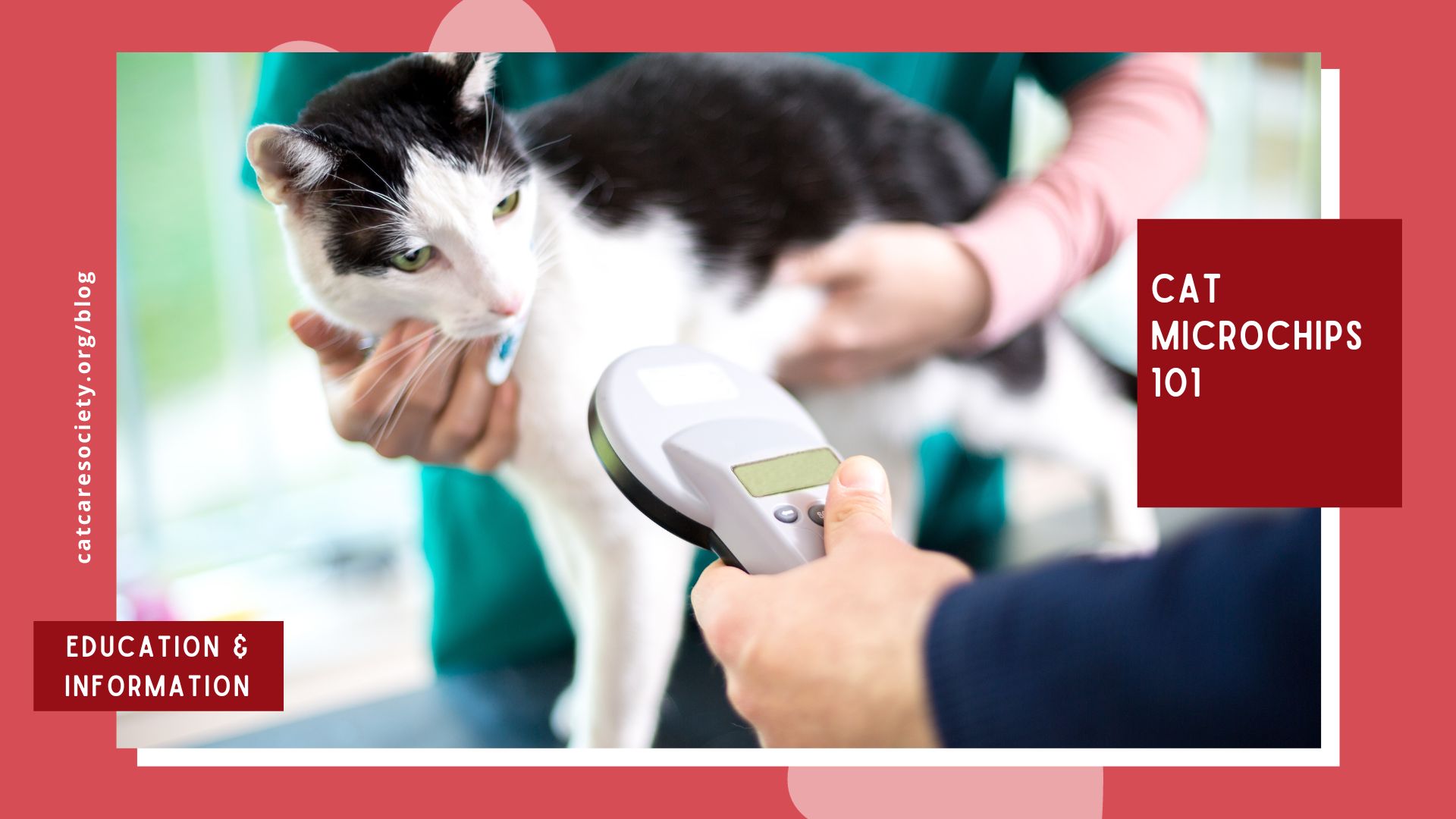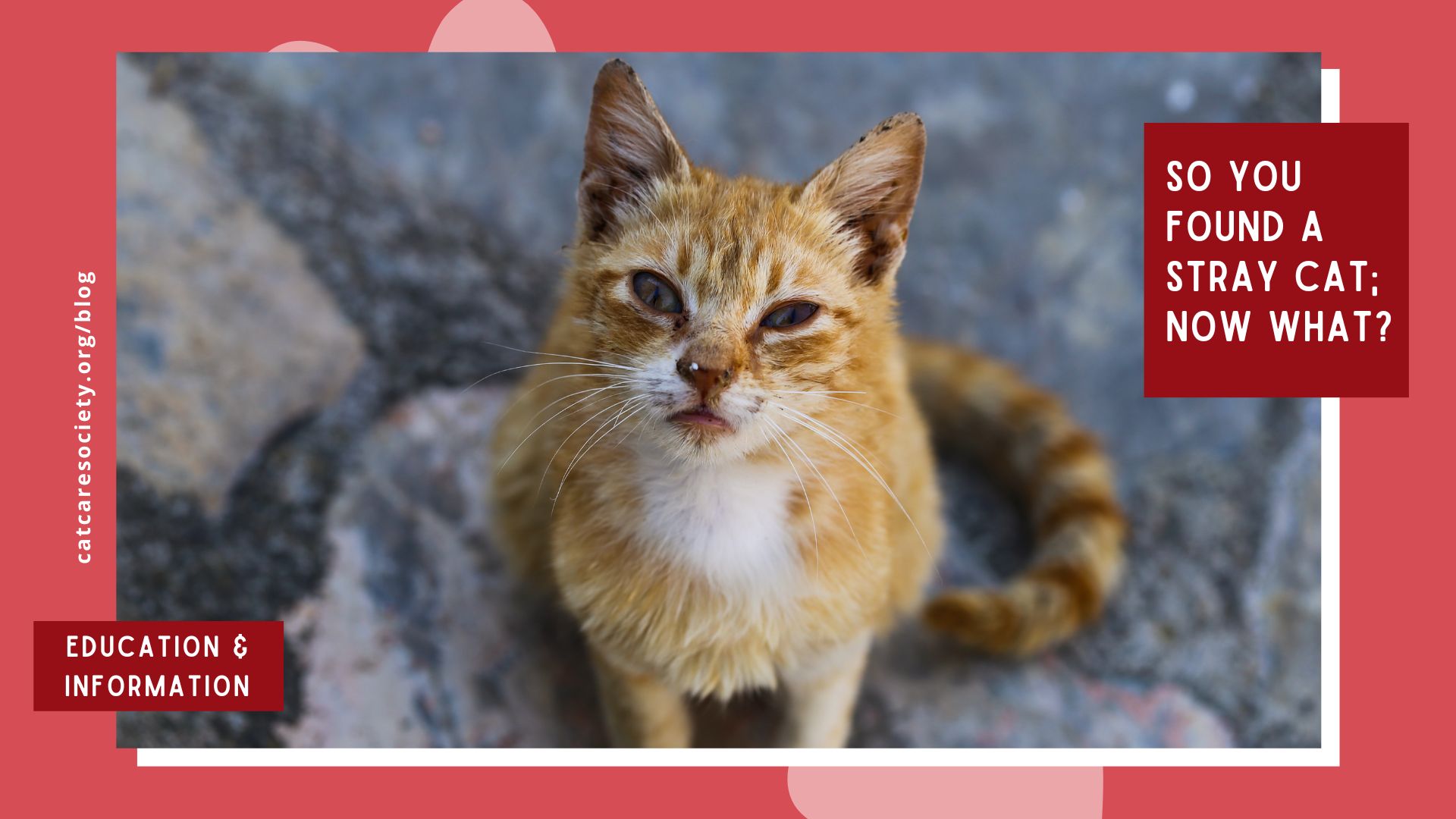By 24PetWatch
A single scan of a microchip can save a cat’s life and reunite him or her with their owner! If you find a stray cat, bring it to a vet to see if it has a chip and reunite them with their owner (you can also look up chips from any manufacturer on this registry database). At Cat Care Society, all cats go to their adoptive homes with age-appropriate vaccines and microchips from our friends at 24PetWatch.
Welcome to our comprehensive guide on cat microchips! Here, we dive into feline identification and the importance of microchipping your beloved cat. Just like dogs, cats can benefit significantly from this technology, ensuring their safety and providing peace of mind for pet owners.
What is a Microchip?
A microchip is a small electronic device smaller than the size of a grain of rice. It is implanted under the skin between your cat’s shoulder blades using a simple and quick procedure. Each microchip contains a unique identification number that can be scanned by a particular device, allowing veterinarians, animal shelters and other authorized individuals to access your cat’s vital information. It’s important to note that a microchip does not contain any GPS tracking information on your cat’s whereabouts.
Why Microchip Your Cat?
Permanent Identification
Unlike collars and tags that can be lost or removed, microchips provide a permanent and unobtrusive way to identify your cat. This is especially important for outdoor or adventurous cats who may wander away from home.
Reuniting Lost Cats
If your cat goes missing, a microchip significantly increases the chances of a happy reunion. Shelters and veterinarians routinely scan found cats, helping to connect them with their owners.
The Microchipping Process
Having your cat microchipped is a quick and virtually painless process. Your veterinarian will use a syringe to inject the microchip under the skin. Most cats tolerate the procedure well, and there’s no need for anesthesia.
Registering Your Cat’s Microchip
Once your cat is microchipped, it’s crucial to register it with your contact information to a microchip registry like 24Petwatch. This step is often overlooked but is essential for the microchip to serve its purpose. Keep your contact details current, especially if you move or change phone numbers.
With 24Petwatch, registering your pet’s microchip number comes at no cost. You can register it effortlessly through a Customer Portal or by reaching out to a Pet Registry Specialist at 1-866-597-2424. The added benefit is that, in the unfortunate event of your pet going missing, you can swiftly act by submitting a lost pet report. This report initiates a search for your pet’s microchip ID within their extensive nationwide database of found pets.
Microchip Scanning
Microchips work by emitting a low-frequency radio wave that a scanner can pick up. When a lost cat is found, veterinarians, animal shelters or animal control can use these scanners to check for a microchip. The scanned ID number is then cross-referenced with a database to identify the cat and contact its owner.
Cat microchips are a valuable tool in ensuring the safety and well-being of your feline friend. This simple step provides an extra layer of protection and increases the likelihood of a swift reunion if your cat ever goes missing. Don’t wait – talk to your veterinarian today about microchipping your cat!
You can learn more about microchips in this article from Alley Cat Allies and on the Jan. 11, 2024 episode of the ALF Answers podcast.






